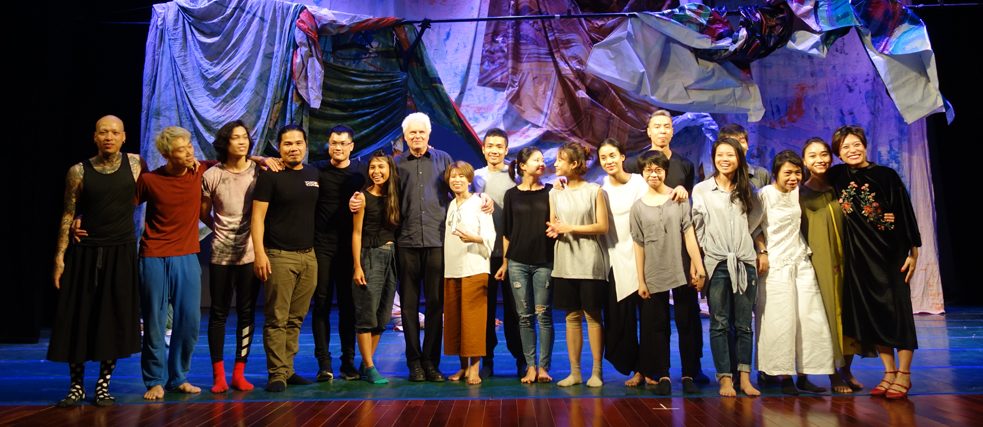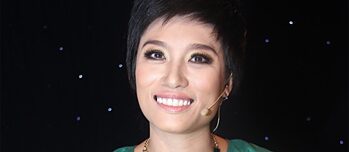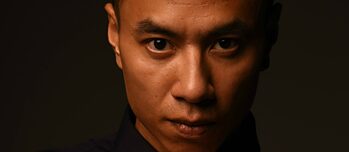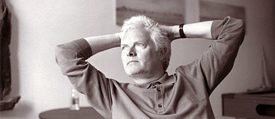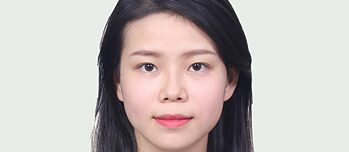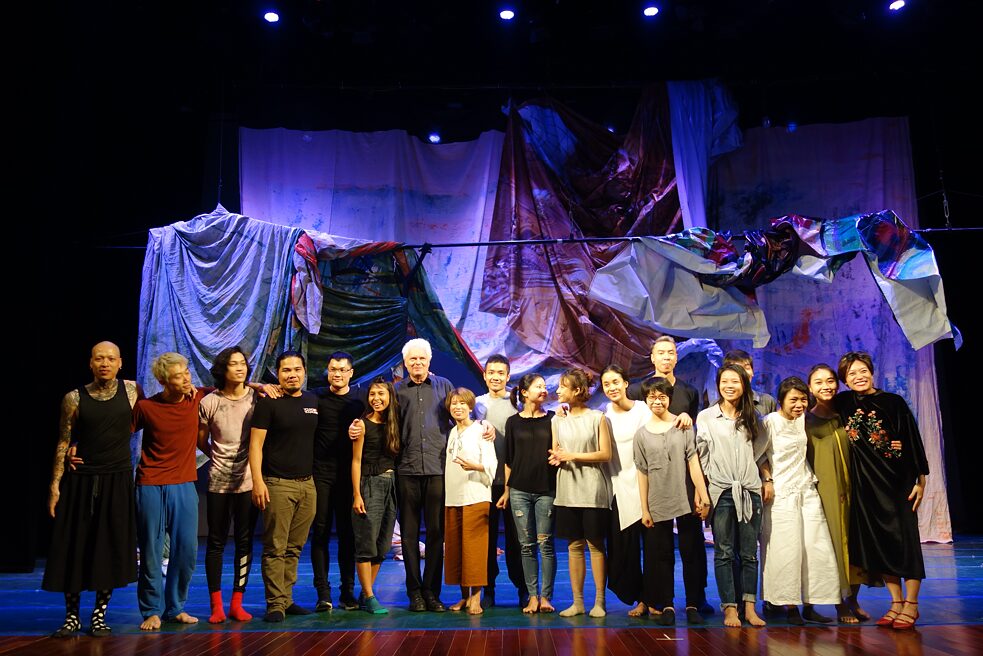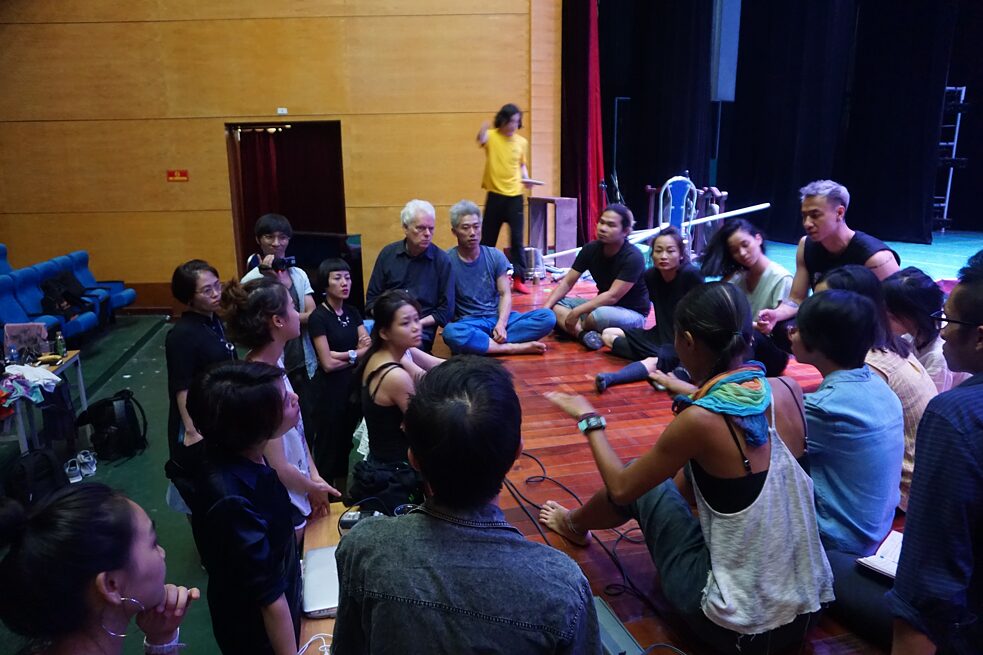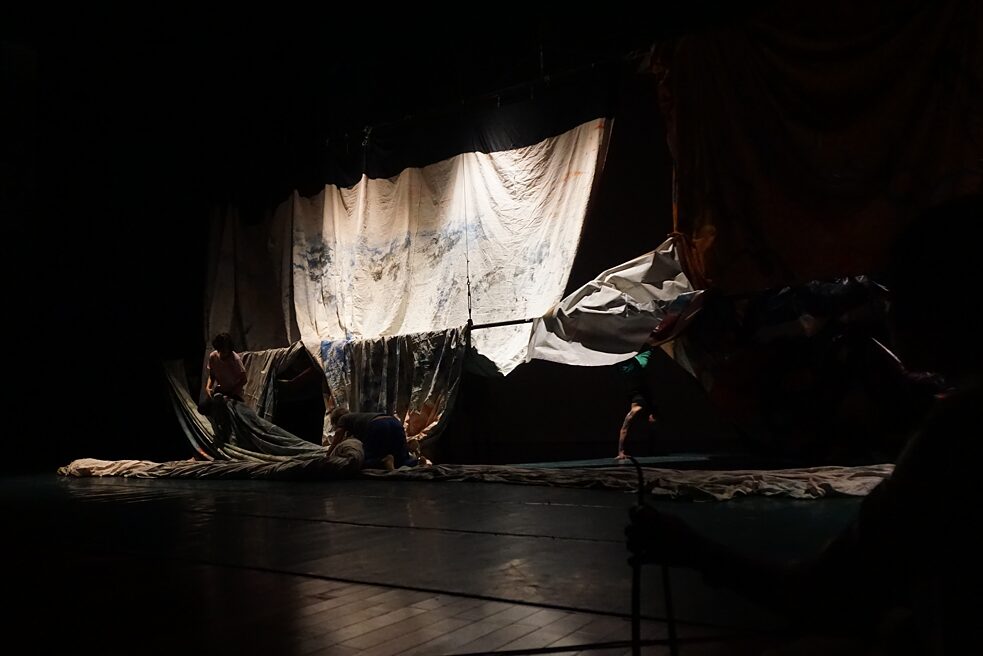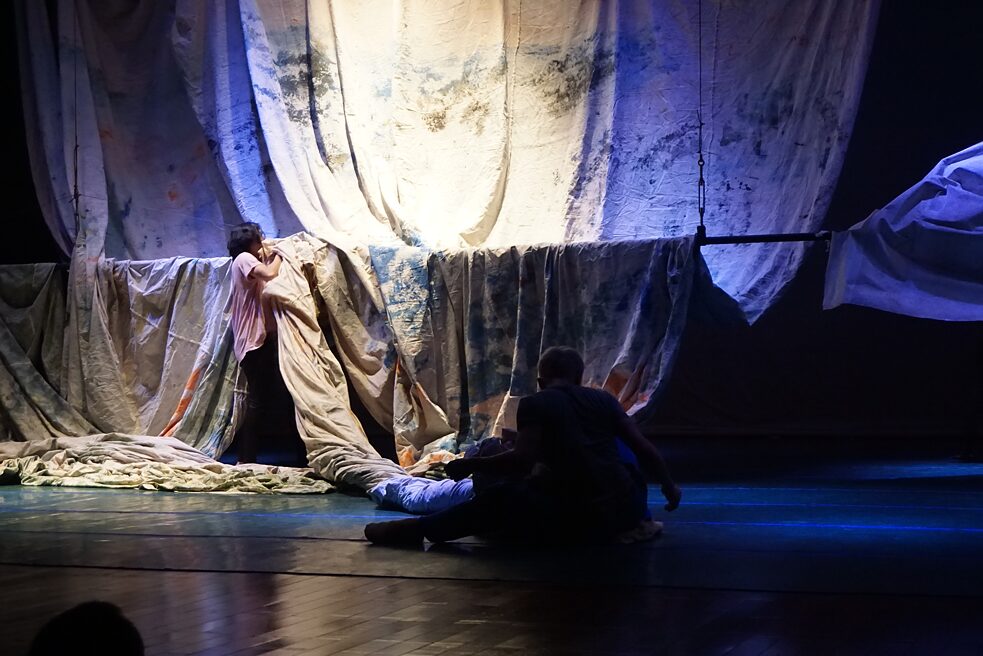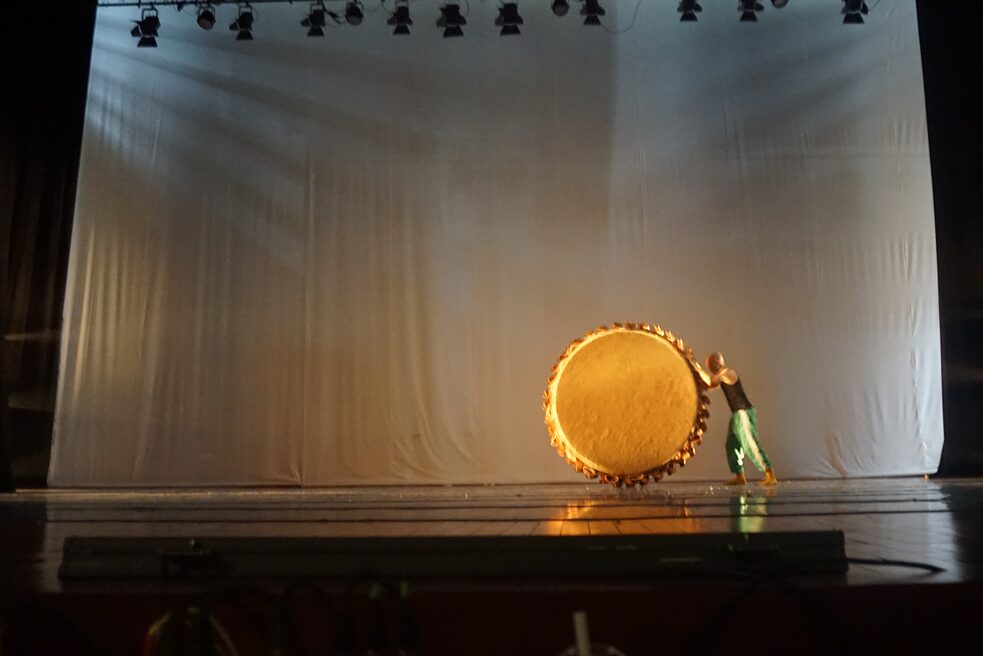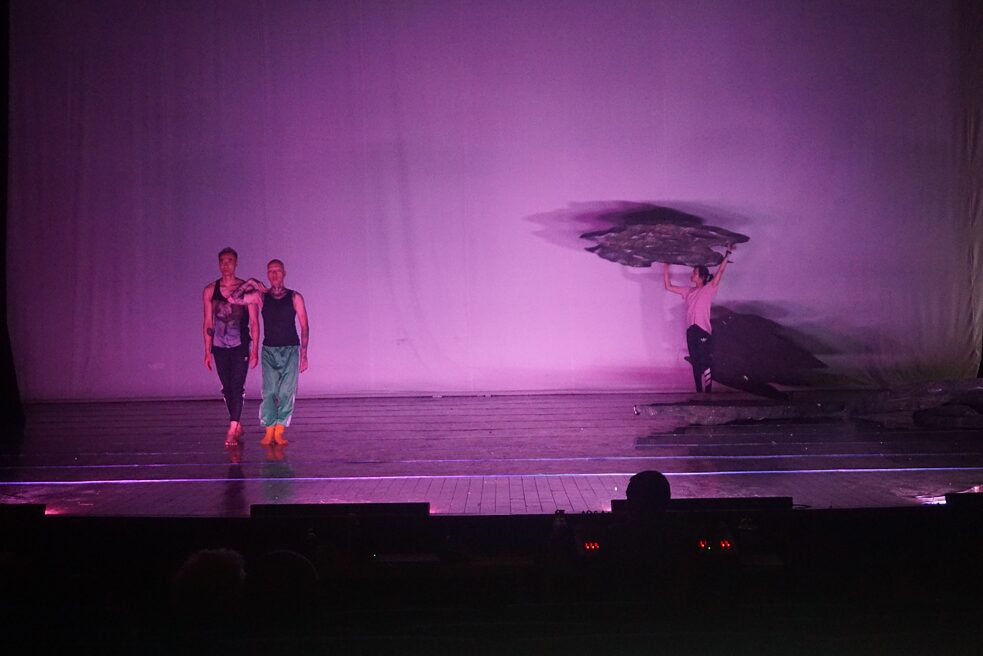The camp pursued different goals; firstly, to be a place of encounter for those who found work abroad and those who stayed in Vietnam and continue to live for their art, without public support or commissioned work. The purpose of the camp was to give all participants a space to try out fresh ideas, unfamiliar approaches, and new forms of collaboration among each other and across genres (dance, music, light, big stage).
The idea for the camp was conceived in Ho Chi Minh City (Saigon) by guest choreographer Dieter Heitkamp (Frankfurt / M.) and our two major event partners in the field of contemporary dance, the dance academy Ho Chi Minh City and the opera (HBSO). A year ago, we decided to skip the annual EUNIC Dance Festival, which had been running for seven consecutive years, and give the local artists an action-packed break.
We want to allow the dancers to refuel creatively before they get bogged down again by pressure to churn out new pieces. Our intention was to provide two weeks full of opportunities for experimenting, discovering new things, and finalizing them for new stage concepts. We wanted to add music to the dance focus. So we wondered who could assist us with this task, to get familiar with the unknown and foreign situation and the Asian environment, who could draw from a wealth of experiences, in particular concerning artists who have to make a living independently, someone who is an authority on innovative stage productions. Of course, one eminent master came to mind immediately. This is how we came to ask Heiner Goebbels - and he actually agreed!
Summer Dance and Music Camp 2018 organized by the Goethe-Institut Vietnam, Vietnam National Opera and Ballet (VNOB) in collaboration with the College of Dance Vietnam has ended with an impressive performance on July 27.
The show lasted for two hours contained six performances and is the result of two weeks of tireless working by eight choreographers and dancer and nine musicians who are working in Vietnam and abroad. The camp was led by Heiner Goebbels and VNOB's Director Tran Ly Ly.
Give power to the imagination!
It starts with a few dancers gathered in the corner of the right wing; motionlessly they stare to the edge of the stage where a drone sound begins to rise. When the vision is blocked, the hearing suddenly becomes unusually sharp. Audiences can almost distinguish each single sound from the wind buzzing noise, accompanied by the high sound of electronic tune and objects rubbing and squeezing together. The Dan tranh (16-chord zither) sometimes soars with sweet and melodious sounds, sometimes wails at utmost high-pitched or repeats a few dazzling notes like an alarm clock.Imagination activated by sound. The stage lightens up, strange objects fly in, dancers re-appear on stage. They do not dance in the conventional sense, but they stand still or move around picking up, dragging, conjoining objects that turn out to be in the shape of gray clouds. Two dancers rush out to touch the clouds then slowly and cautiously retreat backward on their knees to the left wing. What we usually call 'Dance' does not happen until the id of the 16 minute-long opening act when a female dancer dressed in white and hidden behind a dark cloud, unexpectedly exposes herself in the middle of the stage. Like a white cloud floating in the sky, like a bird struggling in the wind, like an amorphous object stuck in somewhere, she is trembling and flapping to get free. The music is once complementary to the dance, at other times in contrast with the movements on the stage. It can bring the audience into a peaceful, tranquil space, and at the next moment pull them right into the heart of chaos.
At this point viewers have come to understand Heiner Goebbels welcoming words: "Please do not think this is a complete performance or do not wait for a complete theater piece. I do not think the piece needs any introduction or preparation for the audience. But we need curious audiences, those who do not expect to see what they already know."
The program includes seven pieces. They are arranged with increasing complexity and more layers of involvement of the actors on the stage, the musicians at the side or in the front, the light designer for the back, the curtain and the other props as objects to be taken serious and played with.
On stage, one must forget themselves
The show challenges the viewer beyond the notion of a traditional dance performance with romantic choreography, harmony between music and movement, and a storyline or message to be conveyed. The two-week camp has challenged all that. It promotes a different approach to all the things that make the magic of theater.At the beginning of the conceptual stage the participants experimented with the props, with the influences of music, the light and different reaction to the props. During the second week, new ideas and the best improvisational performances were selected, rehearsed, sharpened and polished for the purpose of a final show.
Heiner Goebbels’s philosophy is that all elements on stage play an equal role, from object to person, to sound, light and even space. This counters the notion of a number one performer or the center on stage. Instead, artists learn that they are one element in a group and that each and everybody is connected to each other, depends on each other in an interrelationship which produces the picture on the stage for the audience. It is important for an artist to know what to do, when, how long and how. Such questions demand answers from every participant and open up ways for them to pursue their own artistic paths as an independent choreographer or musician with their own thinking and talent to create something new.
Have been disappointed with each other - that's why they had to work together
“The two weeks of the summer camp were not always going smoothly” Ms. Tran Ly Ly said: "There were days when everyone felt down and no one knew how to do," While improvising together, there were moments of sublimation when everything was done too well, but there were also times of "heated debate" between teachers and students because of disagreement, and because the artists sometimes let the improvisation go too far or put their-self up too high to create a collaborated work. "I had a lot of disappointed moments in the last two weeks," said Heiner Goebbels. However, "that's why we have to work together. And that is OK because this is a very new approach to them," he adds.Some of the artists participating in the camp had similar working experience before, as Pham Thi Tam, long-term music practitioners from Dom Dom - the Hub for Experimental Music & Art, said that she has worked with a small group of musicians and dancers to improvised works together. However, improvisation is very difficult, and sometimes they struggle and do not know where to go next, and which path they should choose. "In a small group the focus falls on just a few people, thus the ability to control and coordinate within the group is much easier. But in a big group, it's hard to decide where to focus. And what we learn through this this workshop helps us to solve such problems."
Thuy Linh, a young artist who is still new to experimental music, said: "When practicing together and listening to Heiner commenting on the performance of each participant, I learned a lot, not just about music. As a result, I realized that all kind of contemporary art has a common voice. What I received more from this workshop was the enthusiasm and spirit that everyone here has and their devotion in art practice. Only two weeks and I feel like I have been maturing a lot. Now the camp has finished and I feel a bit sad. After this life is back to normal again but it makes me feel a bit odd. I hope to have the opportunity to meet and work with everyone again."
Heiner Goebbels reminds his students: "I hope every artist participating in this workshop will continue to reflect the work and use it for their future creation."
| - Written by Ut Quyen for HanoiGrapepine.com and Goethe-Institut Vietnam - |
